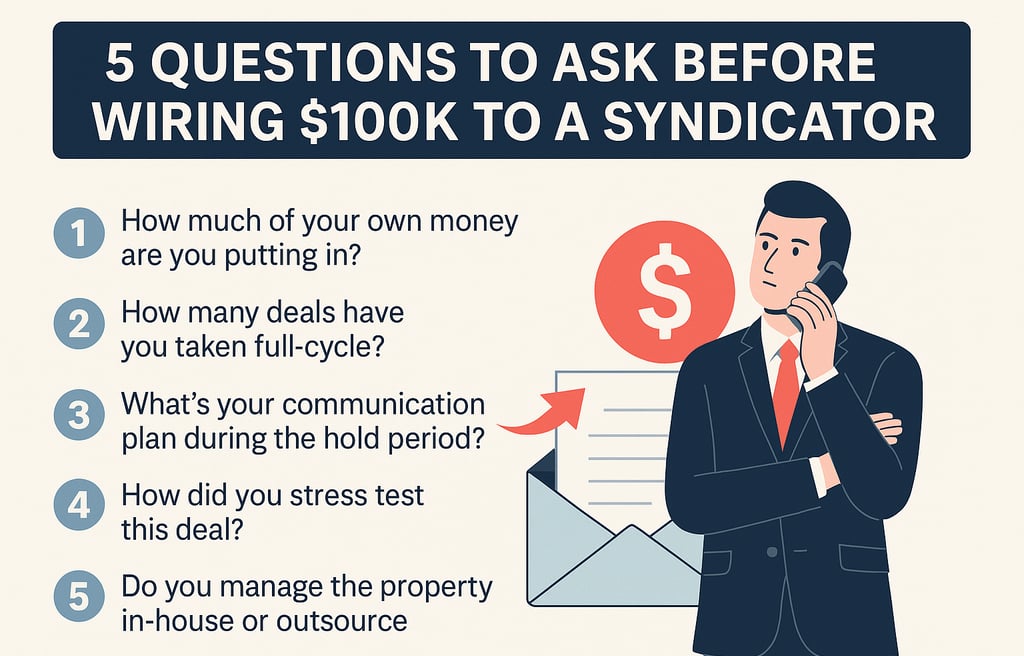💸 5 Questions to Ask Before Wiring $100K to a Syndicator
⚠️ A wire transfer is permanent. These five questions will help you protect your investment and your peace of mind when deciding to work with a real estate syndicator.
EVALUATING DEALS & SPONSORS LIKE A PRO
Published by E&S Properties
6/27/20252 min read


🧠 Before You Click “Send”…
Real estate syndications often require minimum investments of $50K–$100K+. Once that money is wired, you’re committed. So before you invest, take a few minutes to ask these five non-negotiable questions:
1. 🧾 How much of your own money are you putting in?
Why it matters:
When sponsors co-invest, their financial interests are aligned with yours. If they aren’t risking any of their own capital, they might not be as motivated to protect yours.
What to look for:
A sponsor investing 5–10% of the total equity
A statement in the offering memorandum showing their contribution
2. 🏗️ How many deals have you taken full-cycle?
Why it matters:
Experience closing deals is one thing—experience operating, exiting, and delivering projected returns is another.
What to look for:
At least 1–2 full-cycle deals
A clear track record of performance and investor payouts
3. 📬 What’s your communication plan during the hold period?
Why it matters:
Investors shouldn’t be left in the dark. Ongoing updates build trust and provide insight into how the project is tracking against projections.
What to look for:
Monthly or quarterly email updates
Financial summaries with key performance indicators
Access to a dashboard or point of contact
4. 🔍 How did you stress test this deal?
Why it matters:
Markets fluctuate. You need to know the plan works not just in best-case scenarios, but in realistic or even adverse conditions.
What to look for:
Conservative rent growth assumptions
Higher-than-average interest rate scenarios
A break-even occupancy analysis
5. 🏢 Do you manage the property in-house or outsource?
Why it matters:
In-house management often means more control and tighter alignment with the business plan. Third-party management introduces another layer of risk and communication.
What to look for:
A management team familiar with the property type
A track record of successfully operating similar properties
Defined policies for leasing, maintenance, and tenant relations
🧠 Summary
Before wiring a large investment, always ask:
How much is the sponsor investing?
Do they have full-cycle experience?
Will I receive consistent, transparent updates?
Is the deal stress-tested?
Who’s managing the property?
Asking these five questions could be the difference between a successful investment—and a lesson learned the hard way.
🔎 Ready to take the next step?
📩 Sign up for our newsletter to get weekly insights on current trends.
📝 Interested in investing? Complete our investor questionnaire and we’ll be in touch with opportunities that match your goals.
